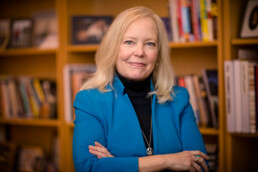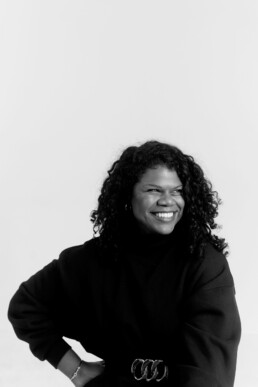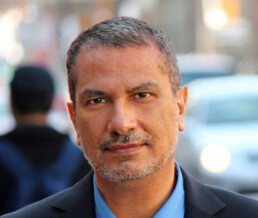Peg Fong
Peg Fong is a journalist and an educator. She is the Vancouver writer for The Economist Magazine, a journalism instructor at Langara College and a business communications lecturer at the Sauder School of Business at the University of British Columbia and Kwantlen Polytechnic University. The former western bureau chief of The Toronto Star, Peg was also a staff reporter at The Globe and Mail, Vancouver Sun and the CBC. In 2020, she was the creator and host of the podcast Alone Together: A Curious Exploration of Loneliness and the author of the young adult book of the same title published in March 2024 by Orca Books. The Spanish version of the show Juntos en Soledad reached the top 10 of the podcast charts in Mexico in 2023. Japanese and Korean versions of the show will launch in 2024.
Her writing has appeared in the Daily Telegraph, The Sydney Morning Herald, New Zealand Herald, the South China Morning Post and The New Quarterly.
Speaking topics
Loneliness and Curiosity
We are living in lonely times. Loneliness is now a global epidemic. The health risks associated with it have cost billions and have factored in everything from cardiovascular diseases to dementia to depression and anxiety. Our sense of isolation is universally recognized, yet it is an intensely private feeling. We all experience loneliness differently. Still, are there things we can share from being alone together? The biggest lessons we can learn about loneliness are found through curiosity and understanding the way we see ourselves and the world around us.
Students and Resilience
Students today face challenges and distractions that previous generations never did. An increasing number of competing demands on their time and attention can hinder their academic performance. We can’t blame it all on social media. First-generation students have even more unique obstacles and often can’t relate to other students who share the same classroom. Innovative communication and learning techniques can help create communities in the educational environment and bring students together.
Building Social Connections Anywhere at Anytime Through Storytelling
From boardrooms to classrooms, around family dinner tables, and around the world, the communities created by shared experiences bind us to each other. We can all learn to be better business leaders, colleagues and educators when we listen and become a community through the gift we can all give and receive: storytelling. This talk is a workshop with writing prompts and brainstorming ideas to use stories to solve problems, find solutions and build confidence.
Journalism, Communications and Public Interest
Imagine a world without journalism. Ethical journalism and communications have never been more critical in today’s world. We live in a time when truth and objectivity are considered untrustworthy and unattainable. How can we trump cynicism about how journalists and communicators inform and engage with the public? This talk is an interactive and hands-on workshop where small groups break down how trust is earned and maintained.
Selected Media
CBC TV News: https://www.youtube.com/watch?
Sam Sullivan’s Salon: https://www.youtube.com/watch?
Apostrophe podcast: https://apostrophepodcasts.ca/
To book Peg Fong, contact Rob Firing at speakers@transatlanticagency.com.
Pauline Dakin
Pauline Dakin is the bestselling author of Run, Hide, Repeat: A Memoir of a Fugitive Childhood which won the prestigious 2018 Edna Staebler Prize for Creative Non-fiction. It was also named one of the best 100 books of 2017 by The Globe and Mail.
Run, Hide, Repeat is also the subject of a five-part podcast series of the same name with CBC Podcasts. Amazon called it one of the best podcasts of the year.
In addition, the memoir is the subject of an upcoming feature documentary and is being adapted as a feature film.
Pauline is a professor of journalism at the University of King’s College, where she specializes in teaching audio and podcasting. She is a fellow of the MIT/Knight Science Journalism program (Cambridge, Mass.) on Medical Evidence.
She’s an award-winning journalist who was for many years a trusted voice on health and medical issues as a reporter for CBC National News. She was also the long-time host of the CBC regional documentary program Atlantic Voice.
Pauline’s reporting and documentary work have been recognized with many regional and national awards.
She lives in Halifax with her husband and their two dogs.
Speaking Topics:
Resilience and Overcoming Hardship (Mental Health)
Resilience, or the ability to cope with and recover from difficulties, is one of the fastest-growing and evolving areas of psychological research. Pauline Dakin shares the story of her chaotic childhood as a lens through which to examine the factors that confer resilience, and approaches that can help people develop it in their own lives. Pauline was told her family was on the run from the Mob, necessitating secret moves without goodbyes to family and friends. The truth was even more bizarre, launching a years-long quest for answers and acceptance.
Delusional Disorder: The Worst Mental Illness You Never Heard Of (Mental Health)
After Pauline published her memoir Run, Hide, Repeat, detailing the exquisitely complex and nuanced delusions that hijacked her family’s lives, she heard from people around the world who’d had similar, if less dramatic experiences. They were relieved to have a possible explanation. Delusional disorder is under-recognized and under-studied, and can be present in people who are high-functioning and appear normal. Because it’s hard to spot, it can pose particular risks to families caught up in the dysfunction. Delusional disorder has been suggested as a diagnosis for cult leader Jim Jones who lead the mass murder/suicide at Jonestown, Guyana in 1978, or more recently the man responsible for the 2020 mass murder in Nova Scotia. Learn about the sub-types of delusional disorder and the remarkable and sometimes horrifying ways in which they impact sufferers and those around them.
Podcasting: Connection for the Ears (Technology and Media)
Everyone wants to make a podcast. This still-growing medium is a way to deeply connect with audiences, whether for journalistic, educational, or marketing purposes. But podcasting is a noisy environment, with millions available to stream and the vast majority of them not connecting. Pauline is the host, co-writer and co-producer of the podcast Run, Hide, Repeat, based on her book of the same name. Amazon named it one of the best podcasts of 2022, and it was the #1 podcast on Apple Podcasts. Learn about the podcasting landscape and what it takes to cut through the noise and grab your audience by the ears.
Misinformation and Disinformation: Countering Fake News in Health Care
The pandemic has shown clearly the risks and harms of false claims and conspiracy theories (ie. Bill Gates’ vaccine chips or bleach treatments.) It’s never been more important to find ways of countering science-deniers and elevating critical thinking. Pauline is a former national health reporter who’s been involved in teaching medical students how to counter evidence-denial and vaccine hesitancy. She uses this experience to help frame and address the problem, particularly in relation to health and medicine.
Storytelling for Scientists: How to Make Your Research Understandable to the Public
We live in an age of disinformation in which science-denying and logic-defying stories proliferate. The pandemic has both exemplified and exacerbated this trend. It’s up to people with knowledge and evidence to share it in a way that is accessible and understandable to the public. Pauline uses her experience as a former CBC health reporter, and a fellow of the MIT Knight Science Journalism program on medical evidence, to help scientists frame understandable messages to share what they know and counter forces of disinformation.
To book Pauline Dakin, contact Rob Firing at speakers@transatlanticagency.com.
Samra Habib
Samra Habib (they/them) is a writer, photographer, and activist. Their bestselling memoir We Have Always Been Here is an exploration of faith, art, love, and queer sexuality, a journey that takes them to the far reaches of the globe to uncover a truth that was within them all along. It’s a triumphant memoir of forgiveness and family, both chosen and not, and a rallying cry for anyone who has ever felt out of place and a testament to the power of fearlessly inhabiting one’s truest self.
As a journalist they’ve covered topics ranging from fashion trends and Muslim dating apps to the rise of Islamophobia in the US. Their writing has appeared in The New York Times, The Guardian, and The Advocate, and their photo project, “Just Me and Allah,” has been featured in Nylon, i-D, Vanity Fair Italia, Vice, and The Washington Post. Samra works with LGBTQ organizations internationally, raising awareness of issues that impact queer Muslims around the world.
Speaking topic
What’s it like to navigate a new country as an 11-year-old refugee kid?
Samra explores what it feels like to be an outsider through storytelling that takes audiences through their journey moving to Canada as a refugee kid, feeling like an outsider within Islam and feeling out of place as a racialized queer Muslim person. Borrowed from the themes of their bestselling book We Have Always Been Here, they will talk about the importance of providing cultural safety in order to ensure that people from various backgrounds and experiences can feel seen and heard. Their talk will be grounded in rich storytelling that will draw examples from their own life in order to highlight what it means to feel like you don’t belong, how those childhood wounds shape the rest of your life and a path to healing.
An interactive element to their talk will include audience participation where people are encouraged to reflect on what they might want to tell their younger self, similar to a critical journey in their book that was instrumental in their own healing.
Beyond hashtags and rainbow washing: allyship in practice
Over the past few years, corporations and institutions have been eager to show their support for 2SLGBTQ+ folks in their advertising campaigns and by changing their logo on social media every Pride. But is that enough? What does allyship that brings about meaningful change to the lives of queer folks actually look like? How can corporations and institutions ensure that their support for queer lives goes beyond performative gestures and brings about meaningful change? Samra will propose different possibilities, shaped by many intersectionalities and lived experiences that inform their perspective as a Queer Muslim immigrant.
Selected media
To book Samra Habib, contact Rob Firing at speakers@transatlanticagency.com.
Eternity Martis
ETERNITY MARTIS is an assistant professor in the School of Journalism at Toronto Metropolitan University and an award-winning Toronto-based journalist. She was a 2017 National-Magazine-Awards finalist for Best New Writer and the 2018 winner of the Canadian Online Publishing Awards for Best Investigative Article. Her writing has appeared in Vice, Huffington Post, The Walrus, CBC, Hazlitt, The Fader, Salon, and on academic syllabuses around the world. Her work on race and language has influenced media style guide changes across the country. She is the course developer and instructor of Reporting On Race: The Black Community in the Media at Toronto Metropolitan University, the first of its kind in Canada. In 2021, she was the University of British Columbia’s Journalist-in-Residence and Asper Visiting Professor, and the first Non-Fiction Writer in Residence at Simon Fraser University in 2022. She earned an honours BA and a Certificate in Writing from Western University and an MJ from Toronto Metropolitan University. In 2020, she was named one of Canada’s Top 100 Most Powerful Women by Women’s Executive Network.
Her bestselling debut memoir, They Said This Would Be Fun, was a “Best Book of the Year” pick by Globe and Mail, Apple, Audible and Chapters/Indigo. CBC called the book one of “20 moving Canadian memoirs to read right now” and PopSugar named it one of “5 Books About Race on College Campuses Every Student Should Read.” They Said This Would Be Fun won the 2021 Kobo Emerging Writer Prize for Non-Fiction and was an Evergreen Award finalist.
Speaker topics
What does it mean to be a student (and woman) of colour on a Canadian university campus today?
In universities across Canada, race-based data is not collected, so it’s almost impossible to understand the needs and challenges of students of colour—and there are many. Even more, there is no formal policy across all universities to deal with racism. According to a CBC investigation, while students of colour experience many race-based incidents on campus, most don’t file a formal complaint because they don’t feel they will be believed.
In this talk, Eternity will share her own journey as a university student on a predominantly white campus—which she details at length in her memoir, They Said This Would Be Fun: Race, Campus Life, and Growing Up. Debunking the myth of Canada’s racial tolerance and the idea that student life is “breezy”, she leads us through her own experience as a Black young woman on campus and ties it to the devastating history of racism at Canadian universities, the re-emergence of blackface parties, and the rise of the alt-right, white supremacy and hate crimes at schools, both from far-right groups and students.
From there, Eternity will examine the impact of racism on campus on students, detailing well-researched links to poor health and a drop in academic performance, both of which she experienced herself as a student. The talk will end with possibilities for how we can all better support students of colour, from parents, friends, professors and allies, to what administrators and decision-makers can start doing now to make campuses more welcoming for students of colour.
*This talk is also delivered as a workshop with breakout groups to collectively work on ways to implement better support for students of colour.
The power of personal storytelling for marginalized groups
Writing memoir has long disregarded young and marginalized people with questions such as “you’re too young, what could you possibly write about?” “You haven’t been through enough yet,” and “You’re ungrateful—be happy for what you’ve got.” Yet the works of white male memoirists are often celebrated. However, memoir writing has been a tool for marginalized groups for centuries—and now is the best time to reclaim it.
In this talk, Eternity will take you through the history of memoir and personal writing, drawing parallels from history to present-day struggles to show us that while much has changed throughout history, much has stayed the same: narratives from the civil rights era to stories day in the Black Lives Matter era; accounts of sexual assault from the first and second waves of feminism and #MeToo stories; stories from residential school survivors and continual attempts to seek truth and reconciliation today. Next, using her own experience as a memoirist, editor, and writing coach, Eternity examines the role of personal and memoir writing today in our current climate where so many people—immigrants, LGBTQ2S+ people, people of colour, young people—are being dehumanized, and presents the case for why personal writing and putting our stories in the public record is still an act of resistance, and how it can offer healing, societal action, and a way forward.
*This talk is also delivered as a writing workshop, with writing exercises and break out groups to discuss ideas.
A silent killer: Interpartner violence among Millennial women
One of the most prevalent crimes against women in their 20s — also known as Millennial women— is sexual assault, and while there are awareness campaigns by both schools and students, interpartner violence is hardly discussed, despite young women in their early-to-mid 20s being the most at-risk group for interpartner violence (IPV) and one of the most at-risk groups for interpartner homicide in Canada.
When we think of violence against women, it’s often in the context of a domestic problem—an issue that affects often older, married women—or in dating violence situations which involves teenagers. But why aren’t we discussing the group of women navigating abusive relationships while in their 20s?
Eternity takes a closer look at violence against Millennial women by using her own experience and the stories she’s learned through her career as an award-winning journalist to break down the unique factors such as social media, societal myths, race and hookup culture that affect Millennial women’s relationships and reporting of IPV—and how we can all work to better understand and fight violence against young women.
Rethinking Objectivity: The Role Of Journalism In A Social-Justice Era
For decades, journalists have been committed to unbiased reporting and to shining a light on injustices in our society, but what if those two concepts are fundamentally incompatible? In a Black Lives Matter and #MeToo era where politicians, companies and celebrities are taking social justice stances, what role do journalists play in naming and reporting on injustice? And in what ways has objectivity been harmful to marginalized groups?
In this talk, award-winning journalist Eternity Martis will explore how the concept of objectivity has shifted since 2014 with the emergence of the global #BlackLivesMatter movement, and how journalists continue to be essential to how our society understands and responds to injustice.
Using decades of high-profile examples, from the 1989 Central Park Five case, the 1994 Just Desserts case, the Black Lives Matter protests of the 2010s and the 2021 Capitol Hill insurrection, Martis will examine the shocking ways that objectivity has left out the most marginalized voices, stories and truths, and the real-life harm it has caused communities of colour. Martis will also address the urgent role journalists play in an increasingly polarized society, and the new directions journalism is taking to create more inclusive reporting.
The Power of Perception: The impact of journalism on the well-being of Black communities
How much power does journalism have over people’s lives? More than you think.
Journalism is one of the most popular influences in our society. It determines our perceptions of events, ideas and people, but it also plays a direct role in the well-being of communities — especially underrepresented communities.
Despite journalism and media becoming increasingly more inclusive and accountable in its coverage of race and racism over the past seven years since #BlackLivesMatter, its practices, as well as unchecked bias in the industry, have had real-life consequences for Black communities, causing the perpetuation of harmful stereotypes and a lasting impact on their ability to thrive socially, economically, and politically in our society. Even with the best of intentions, today’s coverage is still causing detrimental effects on the health and well-being of Black communities. In an era of racial reckoning and accountability, how does an industry with so much power ensure it doesn’t continue to cause irreparable harm to Black people?
In this talk, award-winning journalist Eternity Martis will explore how journalism and media — both historically white industries — contribute to negative life outcomes for Black people. From the (lack of) representation of Black characters on TV, to the editorial decisions made by journalists to air viral videos of Black death, Martis will examine the media’s concerning and substantial impact on Black people’s socio-economic status and participation in society, and offer possibilities for both journalists and media consumers to participate in creating practices that have positive and healing impacts on Black communities and their well-being.
To book Eternity Martis, contact Rob Firing at speakers@transatlanticagency.com.
Rachel Giese
Rachel Giese award-winning journalist and the editorial director of Xtra, Canada’s largest LGBTQ2 media organizations. In 2018, her book Boys: What it Means to Become a Man was one of The Globe and Mail’s 100 best books of year and one of The Walrus’s favourite reads.
Giese is a sought-after expert and speaker in the fields of gender, masculinity, sex and sexuality, LGBTQ2 rights, education, parenting and feminism. For four years, she wrote a weekly column on politics, pop culture and feminism for Chatelaine. She is regular guest host and commentator on CBC Radio shows, including Day 6, The Current, Metro Morning and The Sunday Edition. Her award-winning feature and opinion pieces have appeared in The Globe and Mail, The Walrus, Toronto Life and NewYorker.com. She is frequent speaker, moderator and host for organizations such as the Toronto Public Library, the Institute for Canadian Citizenship, Shelter Movers and the Movember Foundation.
Her critically-acclaimed Boys: What It Means to Become a Man is a vital and sweeping examination of today’s “boy crisis,” demonstrating the ways in which we raise boys into a culture of toxic masculinity and offering solutions that can liberate us all. Whether they’re being urged to “man up” or warned that “boys don’t cry,” young men are subjected to damaging messages about manliness: they must muzzle their emotions and never show weakness, dominate girls and compete with one another. But Giese provides ample evidence for a powerful counter-narrative: given space to explore their identities and a social structure that makes it safe to do, boys are happy to escape the “man box” of traditionally defined masculinity.
Giese can speak on a wide range of subjects related to gender, masculinity, feminism, sex and sexuality, including:
• How to help boys and young men break free from the “man box”
• Gender and the nature-vs-nurture debate
• Understanding and dismantling the roots of toxic masculinity
• The myths and realities of the boy crisis in education
• Beyond the birds and bees for better and more comprehensive sex education
Praise for Boys:
“An educated and empathetic non-fiction book that grapples with the damaging lessons that boys are taught about how to be ‘a man.’ It’s written with incisive reporting and personal experience that looks at every facet of how boys are taught to be in the world and how we can start to dismantle those expectations for everyone’s betterment. Plus, a book about gender norms that also looks at sexual orientation and race? Imagine!”
—Scaachi Koul, author of One Day We’ll All Be Dead and None of This Will Matter
“Boys gives us hope that busting apart ‘The Man Box’ will ultimately lead to fuller, more rewarding lives not just for boys, but for all of us.” —Toronto Star
“A broad, readable take on the limits of modern-day masculinity, and how to push its boundaries to better serve our children and ourselves. It’s full of love but unsentimental, with new tidbits for scholars of gender, race and identify, and valuable insight for parents of little boys, like me.” —Denise Balkissoon, The Globe and Mail columnist
“Boys is a multifaceted exploration of masculinity by one of Canada’s most talented journalists. Rachel Giese’s vision of boyhood — and therefore manhood —is an enlarging, humane one. This is a beautifully reasoned work that should be required reading for anyone interested in detoxifying masculinity.”
—Michael Redhill, author of the Giller-winning novel Bellevue Square
“Giese looks at the challenges she, her wife, and their son face, exploring (most satisfyingly) big questions like what it means to be a man and how we raise boys to conform or reject these ideals… She looks at masculinity with a surprisingly heartfelt curiosity.” —Literary Review of Canada
“Deeply researched, but also deeply considered, Boys is something quite rare in the pages of non-fiction, a page-turner. This is a must read for everyone who loves boys.”
—Tabatha Southey, author and Maclean’s columnist
“These are not good times to be or raise a boy. The toxic expectations of traditional masculinity block and distort healthy, humane development and communications, while many social institutions seem to go out of their way to help girls get ahead, not boys. But in this compassionately written, carefully researched book, Rachel Giese presents a critical but ultimately encouraging view of the possibilities for affirming change. It’s both hopeful and helpful.”
—Bruce Kidd, Professor of Kinesiology and Physical Education, University of Toronto
To book Rachel Giese, contact Rob Firing at speakers@transatlanticagency.com.
Kamal Al-Solaylee
Kamal Al-Solaylee is the author of the national bestseller Intolerable: A Memoir of Extremes, which won the 2013 Toronto Book Award and was a finalist for the CBC’s Canada Reads and the Hilary Weston Writers’ Trust Prize for Nonfiction. His second book, Brown: What Being Brown in the World Today Means (to Everyone), was a finalist for the Governor General’s Literary Awards for Nonfiction, the Trillium Book Award and won the Shaughnessy Cohen Prize for Political Writing. Return: Why We Go Back to Where We Come From was published in 2021 and was a Globe and Mail and CBC Best Book of the Year.
He’s a regular contributor to various TV and radio programs on Canadian and international networks. He has served on many literary juries, including the Giller Prize, Canada’s top fiction award, and the Amazon.ca First Novel Award.
He was previously a theatre critic at the Globe and Mail and has written reviews and features on arts and politics for all major Canadian publications, winning the Gold Medal for columns in 2019 from the National Magazine Awards. He holds a PhD in English from Nottingham University and is the director of the School of Journalism, Writing, and Media at the University of British Columbia in Vancouver.
Speaking Topics
What being brown in the world today means (to everyone)
While issues of racial discrimination and bias have never really disappeared from public and private conversations, they have returned with a vengeance in the last few years. A global refugee crisis, the election of Donald Trump, Brexit and the mass migration of workers from the developing world have forced most of us to reconsider what we know (or think we do) about race and skin colour on one hand and justice, social cohesion and labour on the other.
In this talk, Kamal Al-Solaylee, journalist, university professor and bestselling author, takes an international look at the intersections of race and politics through the lens of brown skin and the emergence of brownness as distinct racialized experience that often gets left out when we see the world in black and white.
From the emergence of brown workers as the source of cheap labour around the world to the racial baiting of a sitting president of the United States to the return of ethno-nationalism in Europe, Al-Solaylee attempts to explain a world that has become increasingly confusing and unsettling. Throughout this talk and his book Brown, Al-Solaylee stops to take a closer look at the lives of men and women caught in the turmoil of these massive global movements and at Canada’s place in that larger narrative.
Return: Why We Go Back to Where We Come From
In this talk, Kamal Al-Solaylee takes his audience on a journey around the world to explore one of the most natural yet frequently misunderstood human experiences: our desire to return to a place of origin, the homeland. Why do many immigrants and refugees leave their adopted home countries to seek a connection with a place they or their parents — and in some cases ancestors — left behind willingly or by force? How do we define belonging or identity in a world where the line between the “here” and the “over there,” our “now” and our “back then” is becoming hard to tell apart. The idea of return as an integral part of the movement of people and our understanding of global migration has received little attention from writers and scholars. Drawing on insights from his book Return: Why We Go Back to Where We Come From (2021), Al-Solaylee explores the many meanings and stories of return through historical analysis, storytelling and on-the-ground reporting from places as far apart as Jamaica, Spain, Northern Ireland, Ghana, Taiwan, Israel and the Palestinian Territories. Along the way, he examines his own utterly irrational obsession with returning to his homeland of Yemen, a country in a state of war for more than seven years now. Behind the geopolitics, he illuminates and shares with his audience a subculture of returnees whose stories are inspiring, funny, surprising and, for the most, never-ending.
To book Kamal Al-Solaylee, contact Rob Firing at speakers@transatlanticagency.com.









